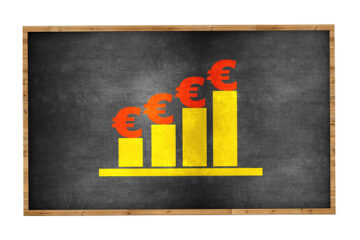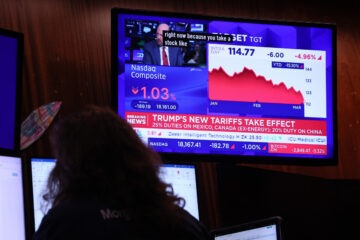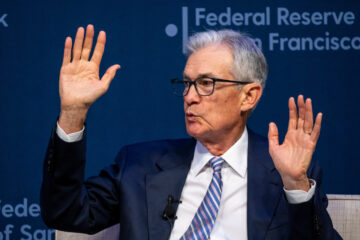The move against stocks is part of the Fed’s drive to tighten financial conditions, said Steve Blitz of TS Lombard.
Many experts think the Federal Reserve will have to push down stock prices to get inflation under control. And some believe the central bank already is doing that.
Steven Blitz, chief economist of TS Lombard, is one of them. TS Lombard is an investment research firm.
“The Fed’s communicated policy trajectory was intended to weaken equities,” he wrote in a commentary. “Equities and the dollar are the Fed’s main conduits to impact the economy and, in turn, inflation.”
The Fed has called for a tightening of financial conditions, which indeed include stocks and the dollar. The S&P 500 index has dropped 10% so far this year.
The Fed’s stock-market strategy could hurt consumer spending, Blitz said.
“If current equity market weakness is sustained, consumers sharply contract spending by the end of this year, possibly sooner,” he said.
Recession Possibility
A recession is possible, but not imminent, Blitz said. GDP shrank 1.4% annualized in the first quarter. “This economy needs a buyers strike to flip into recession, and weak enough equities could stress household balance sheets enough to set one off,” he said.
But, “the economy is not there yet,” he said. “If goods prices come down fast enough from a weak yuan and reopened supply chains, given high levels of employment and spreading rapid wage gains, demand destruction reverses.”
That could blunt the Fed’s move to lower inflation by pushing stock prices down, Blitz said.
“In response, the Fed likely doubles-down, and pushes nominal yields much further above current market expectations.”
That would trigger “a chase that always ends with a hard landing,” Blitz said. In any case, “the golden period of Fed-controlled equity markets may be coming to an end.”
Deutsche Bank Economists Predict Recession
Deutsche Bank economists do think a recession is coming. They see the Fed having to raise the federal funds rate to 5%-6% to get inflation under control. The fed funds rate, which applies to overnight loans between banks, is now 0.25%-0.5%.
Rate increases, Fed balance sheet reduction and the “financial upheaval that accompanies [them] will push the economy into a significant recession by late next year,” the economists wrote in a commentary.
“Something stronger than a mild recession will be needed to do the job” of controlling inflation. They see unemployment ultimately rising by several percentage points. It totaled 3.6% in March.
The basic problem: “the scourge of inflation has returned and is here to stay,” the economists said. “While we may have seen the highs now, it will be a long time before [inflation] recedes back to acceptable levels near the Fed’s 2% target.”
The personal consumption expenditures price index, the Fed’s favored inflation measure, soared 6.4% in the 12 months through February.


